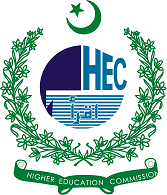Qatar as a Middle Power Mediator: An Exploration of its Motivations to Mediate
DOI:
https://doi.org/10.58932/MULA0056Keywords:
Qatar, Middle East, Mediation, Middle Power concept, strategic interests, altruistic motivationsAbstract
Qatar ticks all the features of a middle power with mediation as a cornerstone of its foreign policy. Over the past few years, it has gained prominence as a mediator, facilitating diplomatic negotiations between several controversial state and non-state actors and leveraging its status as a middle power. This article highlights Qatar’s motivations for embodying the role of a mediator and its role in conflict resolution, substantiated by the conceptual framework of the middle power concept and mediation. The paper has focused on the underlying inspirations for the role mediation, that is, a voluntary process. The study also explores the critical drivers of Qatar’s interest in mediation, which are security and stability in the region. Doha has a limited strategic depth, with the geopolitical struggle for regional dominance between Saudi Arabia and Iran. This article adopts a qualitative approach, integrating extensive and reliable secondary data to analyse the role of Qatar as a middle power mediator in the Middle East. The findings of the study suggest that Qatar’s engagement as a mediator is driven by strategic reasons to pursue international prestige and altruistic objectives. Through this article, we aim to explore the motivations behind Qatari mediation, while shedding light on its evolving position in the volatile geopolitical landscape of the Middle East.
References
Al-Tamimi, N. (2024, June 18). Qatar’s growing investments in Asia: Economics vs geopolitics. ISPI. https://www.ispionline.it/en/publication/qatars-growing-investments-in-asia-economics-vs-geopolitics-177964
Al-Tamimi, N., Amin, A., & Zarrinabadi, N. (2023). Qatar’s nation branding and soft power: Exploring the effects on national identity and international stance. Springer.
Albasoos, H., Hassan, G., & Al-Zadjali, S. (2021). The Qatar crisis: Challenges and opportunities. International Journal of Research in Business & Social Science, 11.
Ahmad, S., Qamar, A. J., Bhatti, M. A. A., & Bashir, U. (2023). Integrating Islamic Ethics with Modern Governance: A Comprehensive Framework for Accountability Across Religious, Social, and Economic Dimensions. Al-Irfan, 8(15), 51-79.
Alqashouti, M. (2021). Qatar mediation: From soft diplomacy to foreign policy. Springer Nature Singapore.
Akbar, A., Ahmad, S., Nadim, M., Bhatti, M. A. A., & Khan, H. (2024). Affect of Hrm on Employee Motivation Towards Green Creativity and Initiatives. Center for Management Science Research, 2(3), 197-216.
Ahmad, S., Bhatti, M. A. A., & Imam, M. A. (2023). Balancing Control and Collaboration: Project Manager Accountability in Multi-Layered Governance Systems. Journal of Professional Research in Social Sciences, 10(2), 134-155.
Anjum, G., & Bhatti, M. A. A. Discover the Impact of Internet Usage on the Academic Performance of Library and Information Science Students. Indonesian Journal of Multidiciplinary Research, 4(2), 377-388.
Akbar, A., Ahmad, S., Ali, M., Fayyaz, M. T., Ali, I., & Bhatti, M. A. A. (2024). Employee Development and Training: How HRM Helps in Staying Competitive in the Changing Market Condition. Al-Qanṭara.
Bashir, U., Saeed, S., & Abbas, S. K. (2020). Strategies for New Product Development in an Emerging Market. Advances in Social Sciences Research Journal, 7(4), 393-397.
Ghaffar, M. A., Shair, W., Afzal, H., ul Hassan, R., & Bashir, U. (2024). Income and Income Aspiration: Exploring the Impact on Life and Financial Satisfaction. Journal of Economic Impact, 6(3), 257-263.
Bhatti, M. A. A., & Nazir, M. U. (2024). The Impact of Project Process Management on Sustainable Project Success in the Construction Sector: The Moderating Role of Risk Management Practices. Bulletin of Business and Economics (BBE), 13(2), 1065-1072.
Baç, M. M. (2024, October 12). Middle power. Britannica. https://www.britannica.com/topic/middle-power#ref1231331
Bhatti, M. B. A., & Durrani, M. K. (2024). The effect of project managers’ competencies on project success with mediating role of project stakeholders’ engagement: A case of IT sector. Journal of Management Info, 11(1), 51-73.
Baniya, D. B. (2021). Soft power in the contemporary world: Recommendations to the small states’ security. Unity Journal, 16.
Barakat, S. (2014). Qatari mediation: Between ambition and achievement. Brookings Institution.
Barakat, S. (2024). Qatar’s mediation: Motivations, acceptance, and modalities. Accord: An International Review of Peace Initiatives, 3.
Beardsley, K. C. (2006). Politics by means other than war: Understanding international mediation (Doctoral dissertation). University of California, San Diego.
Bercovitch, J. (1997). Mediation in international conflict: An overview of theory, a review of practice. United States Institute of Peace Press.
Bercovitch, J., & Gartner, S. S. (2009). International conflict mediation: New approaches and findings. Routledge.
Bercovitch, J., & Kadayifci, A. (2002). Exploring the relevance and contribution of mediation to peacebuilding. Peace and Conflict Studies, 22.
Bhatti, M. B. A., & Khan, M. K. (2024). Implications of Project Managers’ Competencies on Project Success Moderating effect of Project Risk Management: A case of IT Sector in Lahore. Pakistan Journal of Multidisciplinary Research, 5(1), 66-85.
Chughtai, M. A., Bhatti, M. B. A., & Naqvi, I. H. Ethics before Trust in Organization Public Relationships (OPRs): A Review of Real Estate Organizations.
Caloianu, A. F. (2024). Middle powers as mediators: The role of Turkiye and Brazil in the JCPOA, the Ukrainian grain deal, and further developments in the war in Ukraine. Studia Ubb Europaea, 14.
Cha, V. D., & Dumond, M. (2017). The concept of middle power. In R. L. Schweller (Ed.), The Korean pivot: The study of South Korea as a global power (pp. 3–9). Center for Strategic and International Studies.
Cooper, A. F., & Momani, B. (2009). The challenge of re-branding progressive countries in the Gulf and Middle East: Opportunities through new networked engagements versus constraints of embedded negative images. University of Waterloo, 17.
Das, S. (2022). Middle power cooperation in the Indo-Pacific: India and Australia at the forefront. Sage Publications.
Elliott, D. (2024, January 26). Middle powers: What are they and why do they matter? World Economic Forum. https://www.weforum.org/agenda/2024/01/middle-powers-multilateralism-international-relations/
Erskine, A. (2022). The middle power dynamic in the Indo-Pacific: Unpacking how Vietnam and Indonesia can shape regional security and economic issues. Journal of Indo-Pacific Affairs, 11.
Freer, C. (2022). Qatar and UAE in peace making and peacekeeping. LSE Middle East Centre.
Jawad, S., Naveed, H., & Akram, M. B. (2020). Academic Performance of Enrolled Students in the University of Lahore, Pakistan. Quest Journal of Management and Social Sciences, 2(2), 357-365.
John, A. W.-S., & Ghais, S. (2006). International conflict resolution from practice to knowledge and back again. In M. Deutsch, P. T. Coleman, & E. C. Marcus (Eds.), The handbook of conflict resolution (p. 959). Jossey-Bass.
Kamrava, M. (2011). Mediation and Qatari foreign policy. Middle East Journal, 19.
Karatas, I. (2022). Qatar’s return to mediation diplomacy: What changed? Al Sharq Strategic Research, 24.
Katzman, K. (2022). Qatar: Governance, security, and U.S. policy. Congressional Research Service.
Kawakibi, S. (2022). Qatar’s role in the geopolitical scenarios of the Middle East and North Africa. Arab Centre for Research and Policy Studies.
Minich, R. (2015). Conflict mediation: The Qatari experience. Historia i Polityka, 13.
Moore, C. W. (2010). Mediation. US Army Corps of Engineers.
Office, G. C. (n.d.). Foreign policy. Government Communications Office. https://www.gco.gov.qa/en/focus/foreign-policy-en/
Omirgazy, D. (2023, June 10). Middle powers can resolve global challenges, according to experts at Astana International Forum. Astana Times. https://astanatimes.com/2023/06/middle-powers-can-resolve-global-challenges-according-to-experts-at-astana-international-forum/
Rafaqat, M. ., Azad, F. ., Ahmad, S. ., Aijaz, K. ., Ikram, S. H. ., Bashir, U. ., Bhatti, M. A. A. ., & Saeed, S. . (2024). Impact of Governance and Strategy Performance on Employer Branding. Research Journal for Societal Issues, 6(2), 852–867.
Saouli, A. (2020). Unfulfilled aspirations: Middle power politics in the Middle East. C. Hurst & Co. (Publishers) Ltd.
Schweller, R. L. (2017). The concept of middle power. In R. L. Schweller (Ed.), The Korean pivot: The study of South Korea as a global power (p. 9). Center for Strategic and International Studies.
Stefanova, R., & Greco, E. (1997). Typology of conflict resolution. Helmut Kohl Institute for European Studies.
Steinberg, G. (2023). Qatar’s foreign policy decision-making processes, baselines, and strategies. Stiftung Wissenschaft und Politik German Institute for International and Security Affairs.
Sulaiti, H. E. (2024). Qatar mediation strategy: Afghanistan as a case study. Qatar University.
Shair, W., Bano, S., Afzal, H., ul Hassan, R., & Bashir, U. (2024). Well-Being Dimensions and Environmental Protection: The Role of Health, Life Satisfaction, and Financial Satisfaction. Policy Journal of Social Science Review, 2(4), 783-802.
Times, G. (2022, December 15). Qatar calls for concerted efforts to maintain global peace, security. Gulf Times. https://www.gulf-times.com/article/651581/qatar/qatar-calls-for-concerted-efforts-to-maintain-global-peace-security
Ulrichsen, K. C. (2014). Qatar and the Arab Spring: Policy drivers and regional implications. Carnegie Endowment for International Peace.
Ungerer, C. (2007). The “middle power” concept in Australian foreign policy. Australian Journal of Politics and History, 15.
Usef, A. (2022, February 22). Qatar’s role as a mediator in the Middle East. Young Diplomat Review. https://www.youngdiplomat.org/post/qatar-s-role-as-a-mediator-in-the-middle-east
Wani, D. C. (2020, March 13). The struggle for power, profits and prestige in the international system. Modern Diplomacy. https://moderndiplomacy.eu/2020/03/13/the-struggle-for-power-profits-and-prestige-in-the-international-system/
Yalçın, H. B. (2012). The concept of “middle power” and the recent Turkish foreign policy activism. Afro Eurasian Studies, 22.
Yilmaz, Ş. (2017, September 27). Middle powers and regional powers. Oxford Bibliographies. https://www.oxfordbibliographies.com/display/document/obo-9780199743292/obo-9780199743292-0222.xml




